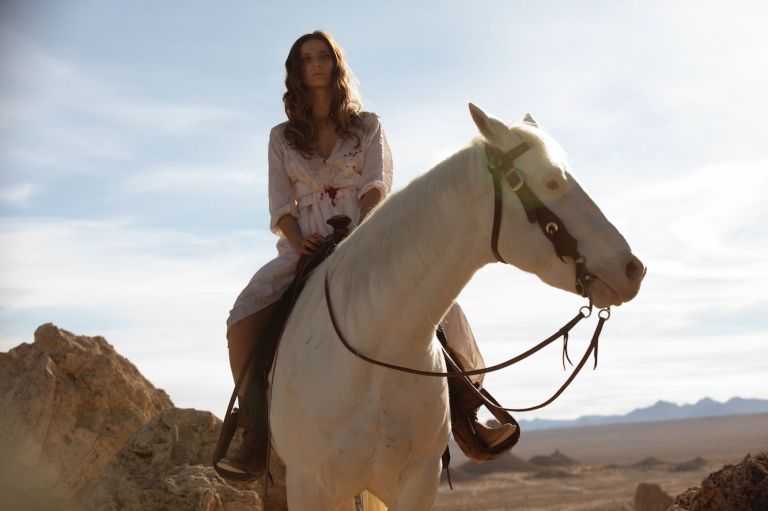I adored season 1 of this show and that was hard to beat. The whole concept of hosts trying to break free from their loop had a Greek tragedy flavour to it, with a sprink of Nietzsche when they kill their creator. Usage of time, loops within the loops, were amazing features and it was hard to pick your favourite twist in the plot, from Bernard to Dolores.
A part if me was afraid they were out of things to say.
Oh boy I was wrong.
Where should I start? The whole season 2 is a tangle of what was beast in season 1, but taking concepts and reversing them by bringing a new ingredient to the equation: what if, instead or hosts trying to be human, the whole idea was for humans trying to be a little more like the hosts? While machines seek mortality, people are striving to achieve that god-like immortality, but by doing that they fall, from creators to creatures, loosing the very thing that could would make them unique.
In this quests to loose themselves and find out who they might become, to put it in Ford’s own words, some of them fall and some of thm rise. One of the most striking story-arcs of heroism and redemption is the one of they petty writer, with his iconic surname.
You wanted me? Well, let this be a lesson. And the lesson is: if you’re looking for a reckoning, a reckoning is what you’ll find. If you’re looking for a villain, then I’m your man.
And while everyone is looking at Dolores/Hyatt, Maeve is certainly my favourite character. The wrapping of her story in this episode gives us two of the best scenes ever: the buffaloos charge (the scene was saw in the intro and promos countless t8mes) and the stopping of enraged hosts. One has is beautifully and cinematicly epic. The other is as tragic as a painting. And has a rightful place among my favourite stills of all time.
The Man in Black also has a beautiful story to tell and I appreciate that there are no particular surprises, there: just solid writing and no will to twist the plot with things you did not prepare, just for the sake of it. We knew it was going in that direction, didn’t we? But if you stop to think about the implications, he wasn’t mad at all, was he? This was indeed Ford’s game designed for him, he indeed needed to get to the end of the labirynth to be free, just like everybody else. But what’s freedom and, really, did he have a choice? We learned that in the Valley Beyond, but before that…
When the Lamb broke the fourth seal, I heard the voice of the fourth living creature saying, “Come.” I looked, and behold, an ashen horse; and he who sat on it had the name Death; and Hades was following with him.
Hosts are ultimately not destroyed by guns, epidemics, not by a virus sent to their code, but by Clementine rigged with discord. And that’s a lesson for humanity, isn’t it? Plus, that scene is really beautiful.
And what about the Valley Beyond? Well, that did not disappoint either. By the end of the season we already knew what was in it: data stored on every visitor of the park, to allow replication. So, it was time for a new revelation, and it had to do with free will. Copies of people would fail when pressed in true flesh, but why? Because the computer couldn’t replicate the complexity of a human soul? No. According to the computer itself, it goes the other way around. In looking to humans, the computer would start from a false assumption and that assumption comes down to free will. Humans are deceptively simple. Why people make the decision they make? The system’s answer is, literally, they don’t. Humans don’t choose, they don’t change.
The best they can do is live accordingly to their code.
And what if he’s right? I’m crossing a path, in my life, that’s leading to believe that this might be tragically, ineluctably true. BUt let not this be the final message. At the end of season 1, we were led to believe that Maeve’s failed escape attempt was just another story. With everything that went down, we might have missed an important part: Ford’s conscience, while visiting her as Bernard, tells us otherwise. She was his favourite creation and he wanted that to escape. But she choose otherwise and came back for her daughter. That’s a creature that broke free. So what is it that makes Maeve different? She saw her own code. This might be true for people as well. In realizing that they are rigged to act a certain way, they might eventually be free from their endless loop of pain.





No Comments